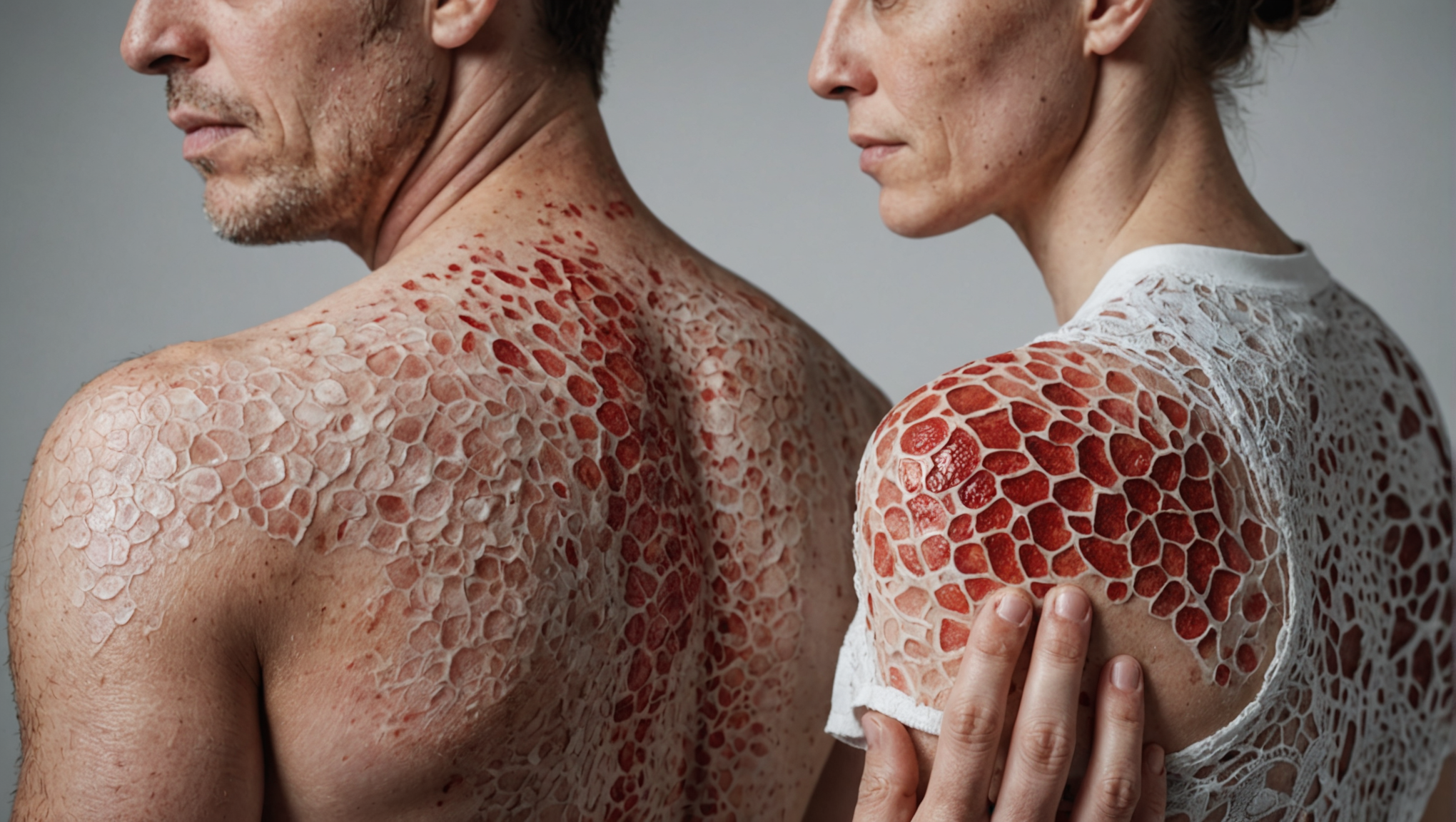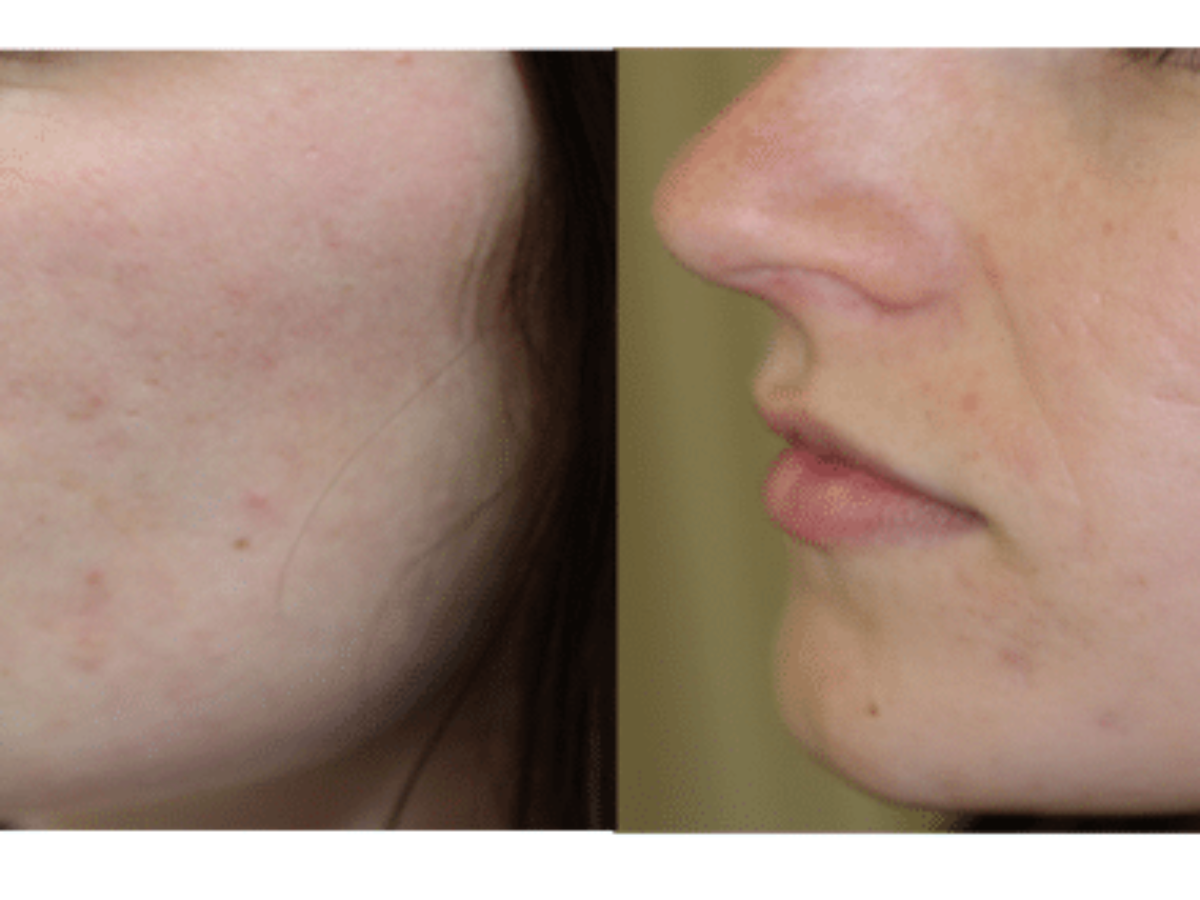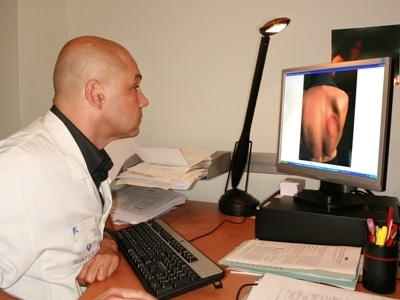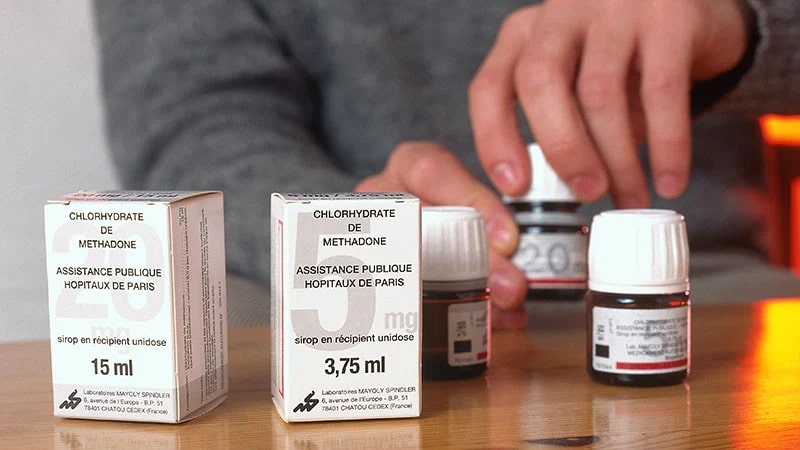THE psoriasis is a inflammatory disease chronic skin condition, the manifestations of which can be both visible and disturbing for those who suffer from it. The symptoms are mainly characterized by the appearance of red patches, thick and covered with whitish scales, often accompanied by itching and painful sensations. Although not contagious, this skin disorder can cause discomfort and affect an individual’s quality of life. Understand the symptoms as well as the methods of treatment available is essential to manage this condition and improve the well-being of those affected.
|
IN BRIEF
|
Psoriasis is a chronic inflammatory disease of the skin that affects many people around the world. It is characterized by the appearance of red patches, thick, often covered with whitish scales. This skin disorder, which is not contagious, can cause both physical and psychological discomfort. This article aims to detail the symptoms psoriasis, its causes possible as well as the various treatment options available.
Symptoms of psoriasis
The manifestations of psoriasis are varied, but the most common symptoms include the formation of thick red patches on the skin. These plaques, often associated with skin inflammation, are generally covered with a layer of dead skin which take the appearance of scales. They can appear on different parts of the body, including the elbows, knees, scalp and lower back.
In addition to the characteristic plaques, some patients may experience itching or burns localized. In more severe cases, psoriasis can cause complications such as psoriatic arthritis, which manifests as joint pain and inflammation.
Causes of psoriasis
The exact causes of psoriasis are still poorly understood, but it is generally accepted that this disease results from complex interaction between genetic and environmental factors. Studies have shown that psoriasis may be linked to immune response abnormal, leading to hyperproliferation of skin cells.
Among the potential triggers, we note the stress, certain infections, skin injuries, and even climate changes. Furthermore, lifestyle factors, such as smoking or significant obesity, can exacerbate the symptoms of the disease.
Psoriasis Treatments
There are several treatment options to control the symptoms of psoriasis, which vary depending on the severity of the disease. For mild to moderate cases, topical creams containing corticosteroids or vitamin D are often prescribed. These treatments aim to reduce inflammation and slow the growth of skin cells.
For more severe forms, systematic treatments may be necessary. This includes oral medications or biological therapies, which act on the immune system to reduce inflammatory reactions. In recent years, new therapeutic options have emerged, offering promising alternatives for patients.
It is essential that treatment is personalized, as each patient reacts differently. A consultation with a dermatologist is therefore crucial in determining the most appropriate approach based on individual symptoms and needs.
Prevention and management
Despite available treatments, management of psoriasis also relies on prevention pushes. Adopt a healthy lifestyle, particularly by maintaining a balanced diet, practicing regular physical activity and managing stress, can help minimize the risk of symptoms worsening.
In short, although psoriasis is a complex disease to live with on a daily basis, a better understanding of its symptoms and treatments can help patients better manage their condition and improve their quality of life.












